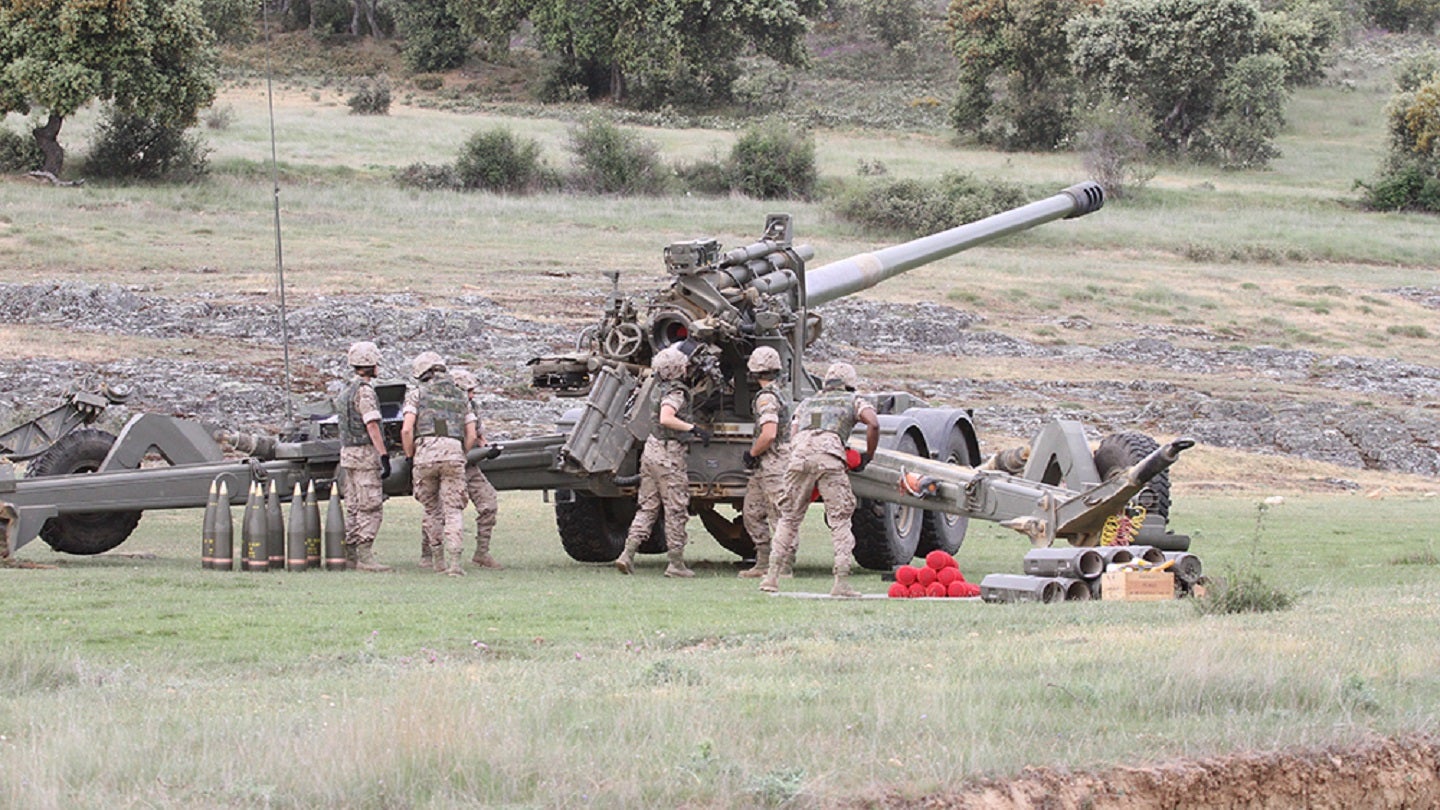
Spain has issued a tender for the acquisition of 155mm artillery ammunition, including specific variants such as illumination and smoke shells, in a deal worth up to €150m ($163.7m).
Published on the European Union’s contract database on 3 January, the tender has a set deadline of 31 January and will be procured through Spanish Ministry of Defence funds and not through the European Union.
The Spanish Army fields two weapons systems that utilise 155mm calibre ammunition – the US-origin M109A5 self-propelled artillery platform and the Santa Bárbara Sistemas 155/52 howitzer.
According to GlobalData’s analysis of Spain’s defence equipment inventory, the Spanish Army operates 66 155/52 APU-SIAC 155mm howitzers, along with 16 of the SBT-1 variants. Of the M109A5, it thought around 100 units are in service with the Spanish Army and Marines.
GlobalData analysis indicates that the Spanish defence budget increased from $9.5bn in 2019 to $13.1bn in 2023 and is forecast to continue to increase through to 2028 as the country looks to meet the Nato 2% of GDP benchmark for defence expenditure
European artillery ammunition aspirations failing to meet reality
Artillery ammunition production has been a key topic of discussion among the upper echelons of the EU’s leadership, with Ursula von der Leyen, head of the European Commission, calling for an increase in cooperative defence spending and artillery ammunition manufacture across EU member states.
In a December speech to the European Defence Agency, von der Leyen stated that the countries of the European Union would produce one million artillery shells per year from 2024, as the continent’s defence industries orientate towards more active production line in the face of Russia aggression in Ukraine.
Speaking to members of the European Defence Agency (EDA) at the end of November, von der Leyen claimed countries of the European Union – referred to in the speech as “Europe” – had produced or delivered 480,000 round of artillery ammunition to Ukraine.
“This would have been unimaginable just two years ago. And it already marks a massive step forward for our defence cooperation,” von der Leyen stated.
However, this figure was less than half of the quantity first intended to be produced for Ukraine. Kyiv is struggling for financial and military support from its US and European allies, offering a bleak forecast for the ongoing war with Russia.







